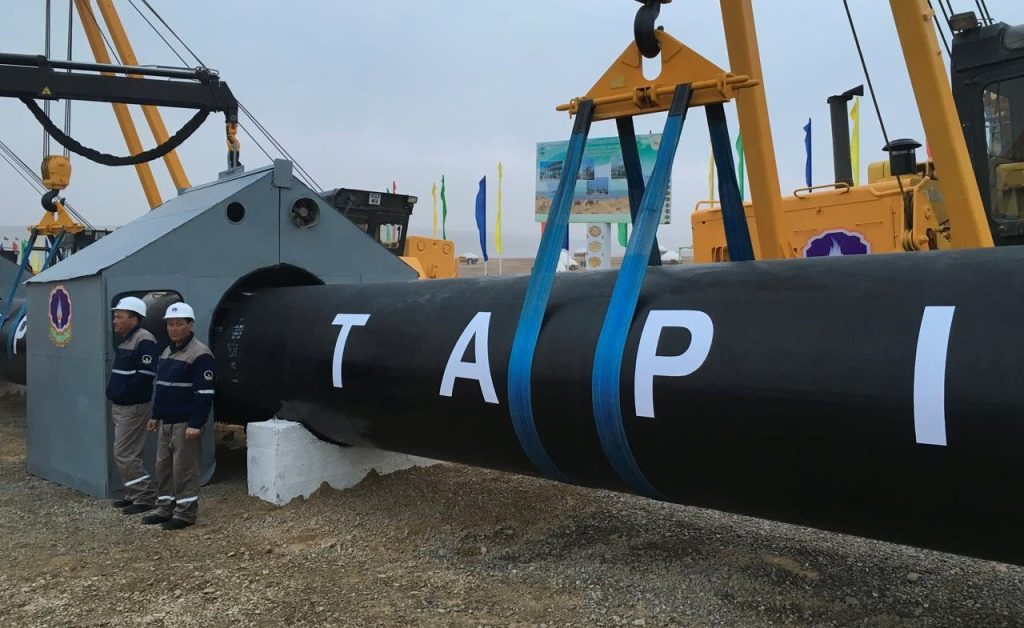ISLAMABAD: Pakistan and Turkmenistan have committed to accelerating the TAPI pipeline project, which aims to link the energy-rich Central Asian country through Afghanistan to Pakistan and India, according to Radio Pakistan on Friday.
The pipeline is set to transport 33 billion cubic meters (bcm) of natural gas annually along an 1,800 km (1,125 miles) route from Galkynysh, the world’s second-largest gas field, to Fazilka, an Indian city near the Pakistan border.
Initiated in Afghanistan in 2018 amidst the Taliban’s conflict with the Western-backed government in Kabul, the Taliban has since pledged cooperation, recognizing the project as crucial for the country’s economic infrastructure. Afghanistan, facing chronic energy shortages, is expected to use 5% of the gas, with the remainder equally split between Pakistan and India.
Radio Pakistan reported that Pakistan and Turkmenistan have agreed to expedite the TAPI gas pipeline project following a meeting between Pakistan’s Minister for Petroleum Musadik Malik and Turkmenistan’s Minister of Foreign Affairs Rashid Meredow, who was on a two-day visit to Pakistan. Musadik stated that “substantial progress has been made through collaboration on the TAPI Gas Pipeline project aimed at promoting economic integration and energy security.”
The CEO of TAPI Pipeline Company, present at the meeting, noted that the project had made “significant progress and was on the right track due to the interest of Pakistan’s Ministry of Petroleum and Special Investment Facilitation Council.” Rashid Meredow mentioned that a “roadmap” would be developed to enhance cooperation between the two nations.
Turkmenistan, holding 4% of the world’s natural gas reserves, plans to triple its gas output to 230 bcm over the next 20 years. With a population of just 5 million, it aims to export nearly 80% of its production. Traditionally sending gas north to Russia, Turkmenistan is increasingly supplying China, Iran, and Europe. The TAPI pipeline will potentially open large new markets in India and Pakistan.
Pakistan seeks to position itself as a regional trade hub, leveraging its strategic geopolitical location to enhance its role as a trade and transit connector between the landlocked Central Asian republics and the rest of the world. Recent months have seen increased visits, investment talks, and economic activities between Pakistan and Central Asian states, including meetings with leaders from Uzbekistan, Azerbaijan, Tajikistan, and Turkmenistan.


